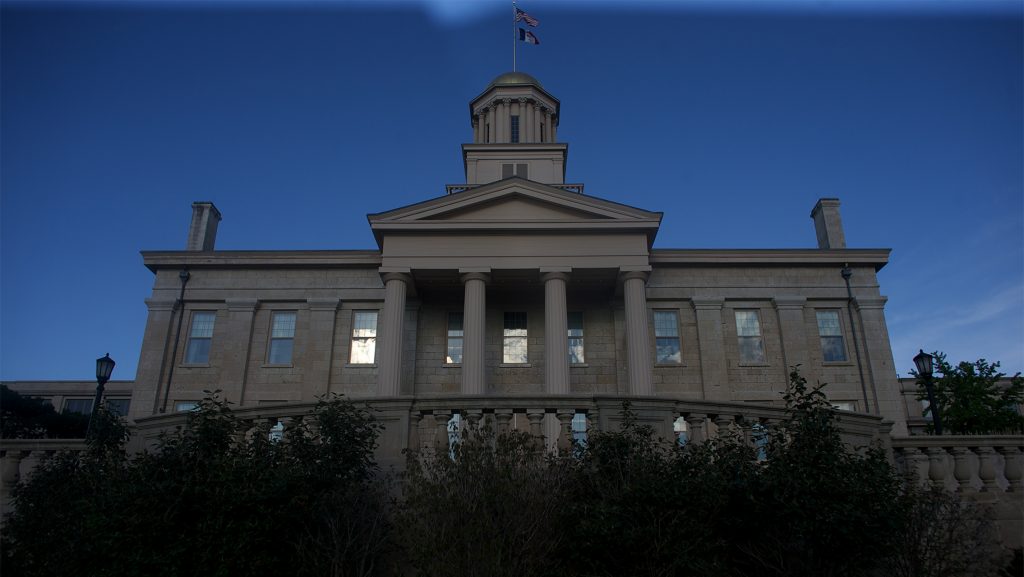Hawkeye Completion Grant Program helps students with overdue U-Bill Charges
After the Hawkeye Completion Grant program was awarded $30,000 by UISG this past spring, 61 students received grants in order to continue their education and boost retention rates.
The Old Capitol is shown on Monday, July 25, 2016.
September 24, 2018
University of Iowa Student Government has awarded 61 grants to UI students after it allocated $30,000 to the Hawkeye Completion Grant Program in spring 2018 in an effort to help boost retention.
The program, initiated by former UISG President Jacob Simpson, helps students with $100 or more of overdue charges on their university bill. Overdue charges prevent students from registering for classes or receiving their degrees.
According to the state Board of Regents’ Annual Graduation & Retention Report for Fall 2017, the UI’s retention rate for students returning for a second year was 86 percent, down one percentage point from the previous year. The UI’s retention rate is the second lowest among its 10 peer universities.
Tristan Schmidt, the UISG director of academic affairs, took on a supporting role when Simpson introduced the program. He has now picked it up as a personal project.
The grant was primarily geared toward juniors and seniors with charges between $100 and $1,500 on their U-Bills. UI Director of Academic Support and Retention Mirra Anson said the average grant amount was $1,100.
“We had $72,000 to award, so all the money goes to 61 students,” Anson said.
Students who were eligible and applied for the grant generally received it.
“The total number of applications, if I’m counting the numbers correctly, was around 70,” Schmidt said.
However, the challenge wasn’t deciding who received the grant but rather getting people to apply in the first place.
Cindy Seyfer, the UI senior associate director of Student Financial Aid, said she found it difficult to distribute and spend the grant money surprising.
She said the process involved reaching out to students, asking that they finish the application, and following up with phone calls because students were unlikely to respond to emails.
RELATED: UISG helps fund program that aim to help with completion rates at the University of Iowa
“People don’t read their emails, and I understand that with the number of emails people get,” Seyfer said. “That’s why we moved to phone calls. But we also had very specific criteria for how we were looking at students to encourage them to apply.”
The criteria included contracted charges that hadn’t been met, she said. The grant could not cover overdue charges that came from parking, fraternities or sororities, or extra food costs. Eligible applicants must also use all the financial-aid options available.
Kelsey Ryder, an assistant director of Student Financial Aid, said this had an effect on the response rate for the grant applications.
“There was typically about a 50 percent response rate, so there were a lot of students who received the option to apply but just didn’t apply,” Ryder said. “So about half the students that we sent the application to, half of them just didn’t fill it out.”
Despite this, the grant has positively affected graduation rates at the UI; 81 percent of students who received the grant, or 50 out of the 61 recipients, are currently enrolled in the fall semester.
“Twenty-three of those students have their degrees, and 28 are currently enrolled in the fall, and it adds to 61 because there was a student that also received a degree and also registered for classes again,” Schmidt said.
Of the pool of applicants who didn’t receive the grant, a number of them still found a way to enroll for the fall semester or graduate.
“Sixty-two percent have their degree or they were enrolled again for the fall, so they found some source to help them with that,” Schmidt said. “So, we saw that this definitely has a high impact on their ability to graduate or register.”






